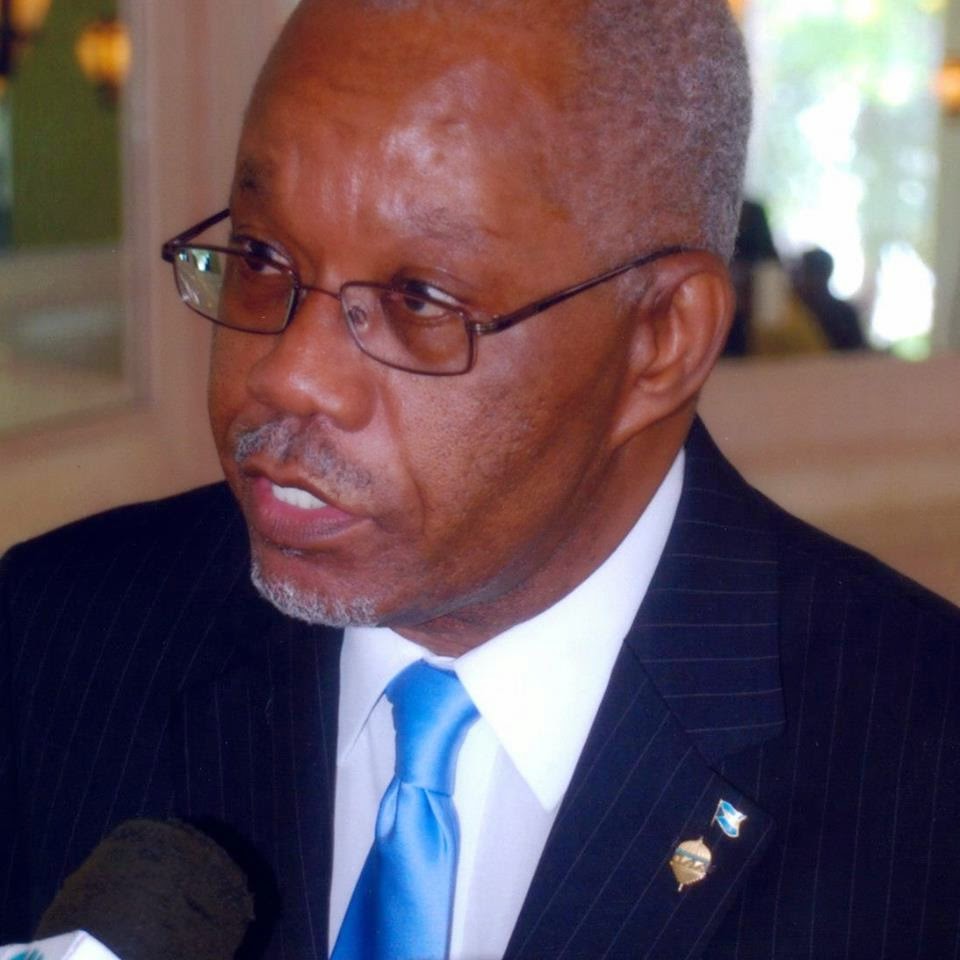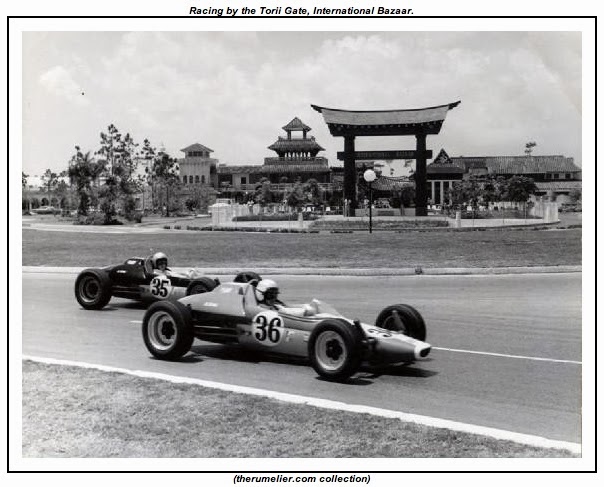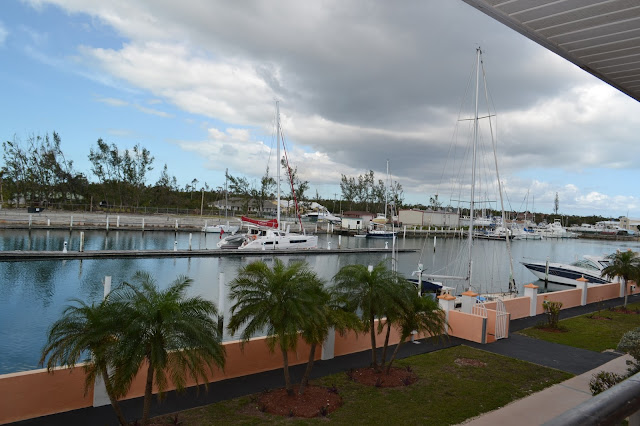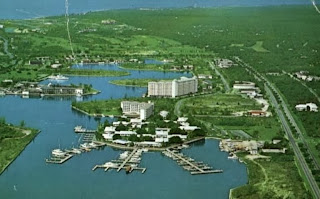McCartney explains the HCA
I came across this great writing last evening while thinking of what my next post would be about. As usual the words of wisdom displayed by Bahamian Educator Dr. Donald McCartney really impresses me. It is a full explanation of the Hawksbill Creek Agreement as he sees it and I really do concur.
Here it is in its entirety as it was written:
Here it is in its entirety as it was written:
This is another excerpt from my manuscript. it features the Hawksbill Creek Agreement in layman's terms.
The Hawksbill Creek Agreement
The Hawksbill Creek Agreement is a contract between the Bahamas government [at the time] acting on behalf of the British Crown and the Grand Bahama Port Authority. The principal concessions contained in the Agreement relates to taxation and customs duties within the area designated as the ‘Port Area.’ This Agreement was signed on the 4th August, 1955, by the Honourable A. G. N. Gardner-Brown, Acting Governor of the Bahamas, and Mr. Wallace Groves, President of the Grand Bahama Port Authority Limited.
For its part, the Port Authority promised to create a harbour and develop an industrial community on Grand Bahama. The Government guaranteed to the Port Authority and its licensees that non-consumable items could be imported into the ‘Port Area’ free of customs duty. It further agreed that there would be no excise, export or stamp taxes for the length of the Agreement; which is to say for ninety-nine years [expires in 2054].
It also stated that for thirty years after the signing of the Agreement [which was later extended by five years to 1990] there will be no real estate taxes, personal property taxes or taxes levied against the Port Authority or its licensees on earnings in the country. The Government also gave the Port Authority the right to manage the ‘Port Area;’ exclude undesirables; to plan the ‘Port Area;’ to license persons or business and to generally operate almost without reference to the Government.
Simply stated, the Hawksbill Creek Agreement is a rather straight forward declaration of concessions granted by The Bahamas Government in return for certain commitments from the developers.
On the 11th July 1960, the Government and the Port Authority signed a further agreement, known as the Supplemental Agreement or the first Amendment. This Agreement acknowledged the accomplishments of the Port Authority and verified that the Port Authority had dredged the harbour channels, constructed a bunkering base and a dock; and had followed through with all the commitments of the Principal Agreement. It also granted to the Port Authority additional 150,000 acres of land extending between Sea Grape and Gold Rock Creek at an extremely minimal price.
In consideration of this, it was agreed by both the Port Authority and the Bahamas Government that the original Hawksbill Creek Agreement would be amended by requiring the Port Authority to: build a 200 room luxury hotel by the 31st December, 1963; to provide free education for school children living within the ‘Port Area;’ and it re-affirmed that the Port Authority would continue to attract and encourage the establishment of ‘lawful’ business enterprises in Freeport.
Approximately six years later, on the 1st March, 1966, the Hawksbill Creek Agreement was amended for the second time. This amendment became know as the second Amendment. This amendment would become affective after four-fifths of the licensees show that they were willing to accept the proposed change, as provided for by the Agreement.
After the Government acknowledged that obligations of the first Amendment had been carried out, the Port Authority agreed to build 1,000 low and middle income houses in Freeport beginning with 200 which was to be constructed over the period of eighteen months following the signing of the Amendment Agreement or the second Amendment. As a result of this amendment, for the first time, lower income workers were now able to live in the Freeport area.
After the Government acknowledged that obligations of the first Amendment had been carried out, the Port Authority agreed to build 1,000 low and middle income houses in Freeport beginning with 200 which was to be constructed over the period of eighteen months following the signing of the Amendment Agreement or the second Amendment. As a result of this amendment, for the first time, lower income workers were now able to live in the Freeport area.
Additional provisions in the Amendment required for the Port Authority to build school accommodations for some 1,400 students and two clinics in Freeport and surrounding settlements that the Government agreed to operate. The Port Authority was also charged to extend the water lines to the settlements of Pinder’s Point and Eight Mile Rock, and pay 10,000 pounds sterling towards the cost of a town planning study for the above mentioned settlements.
As noted earlier, the Government and the Grand Bahama Port Authority Limited entered into three Agreements dated the 4th August, 1955, the 11th July, 1960 and the 1st March, 1966. Certain aspects of these agreements expired on the 4th August, 1990. During the thirty-five year period [4th August, 1955 to the 4th August, 1990], no real property taxes or rates and no real property levies of any kind was levied, charged or collected by the Government of the Bahamas, within the Port Area or against any land, building or structure within the Port Area.
There were several additional Acts of Parliament that were passed in 1992 and 1993 that extended certain terms that were granted under the original Hawksbill Creek Agreement. Law required these Acts of Parliament because it was difficult for the Grand Bahama Port Authority to locate many of its licensees.
The Hawksbill Creek Grand Bahama Act, 1992 extended the exemption period of thirty-five [35] years, that ended on the 4th August, 1990, was extended until the 4th August, 1993. It is my belief and understanding that there was another Act of Parliament, which would have covered the period 1990-1992. Unfortunately, that particular piece of legislation was not available at the time of my research for this presentation.
The Hawksbill Creek, Grand Bahama Act, 1993 gave a further extension for twenty-two [22] years [to 2015] of certain exemptions which were due to expire on the 4th August, 1993 with effect from the same date. As a result of this extension of the exemptions, the Parliament of the Bahamas approved the passage of the Freeport, Grand Bahama Act, 1993. This piece of legislation authorized the Government to enter into an agreement with the Grand Bahama Port Authority Limited and the Grand Bahama Development Company Limited in order for the fore-mentioned Companies to carry out certain developmental works as noted below.
•Build and complete with appropriate landscaping at a maximum cost of two million dollars a centre for the administration of justice. These facilities were to comprise of accommodations for the sitting of the Supreme Court and the Magistrate Court.
•Contribute, in two equal installments, the sum of seven million dollars towards the construction of two high schools to be built by the Government on mutually agreed sites in the Port Area. The land is to be donated by the Grand Bahama Port Authority Limited and the Grand Bahama Development Company Limited.
•Make five annual payments of the sum of five hundred thousand dollars to the Treasurer of the Bahamas. This money is to be used to defray the administrative expenses of the Government in the Port Area. This particular undertaking will be reviewed in the fifth year.
•Fund the construction of a children’s library in the Port Area by 1996. The Grand Bahama Port Authority Limited and the Grand Bahama Development Company Limited is responsible for maintaining the library.
•Fund the construction of a children’s library in the Port Area by 1996. The Grand Bahama Port Authority Limited and the Grand Bahama Development Company Limited is responsible for maintaining the library.
•By 1995, fund the construction, establishment maintenance of an arts and crafts teaching centre in the Port Area.
•Construct, by 1996, a modern multi-purpose sports track and field facility. This facility is to include a regulated athletic track.
•Within ninety [90] days of the signing of this Agreement, construct a fruit, vegetables and fruit vendors’ complex on the grounds of the existing produce exchange. The cost, of this facility, is to be equally shared by the Government and the Companies.
•By the end of the year 1996, assume responsibility for upgrading the existing potable water distribution system to Eight Mile Rock and the western settlements of Grand Bahama.
•Promote home porting and container port facility at Freeport Harbour.
•Construct or cause to be constructed beachfront cottages to promote second home investment in the Port Area.
•Assist in the creation of Local Government in Grand Bahama.
•Donate land within the Port Area for a new and adequate hospital.
•Promote the development of an International University.
•Carry out measures that are necessary to address erosion of public beaches in Grand Bahama.
•Conduct a feasibility study to determine water allocation for development purposes in the Port Area.
•Introduce additional environmental framework for development.
•Update the Master Land Use plan for the Port Area.
•Update the Master Land Use plan for the Port Area.
•Establish an organization to promote Grand Bahama internationally.
•Upgrade Freeport into a garden city in keeping with the Government’s “Beautiful Bahamas Programme.”
•Assume responsibility for the maintenance and upkeep of Queen’s Highway in the Port Area, that is, from the High Rock Settlement to Eight-Mile Rock.
•Donate land for a Police Headquarters in the Port Area.
It was agreed, that, if the Grand Bahama Port Authority Limited and the Grand Bahama Development Company Limited failed to carry out and complete any of the works or undertakings, the exemptions granted will cease unless the Government and the Companies otherwise agree in writing, that is, they must sign a separate agreement in this regard.
The parties to the Agreement also agreed that, where no particular date is given for the carrying out of a work or undertaking, the Government will give notice in writing to the Companies. This notice will require the Companies to correct their neglect within thirty days. Where the Government is satisfied that the neglect continues after the given period, the Government will by further notice, note the continued neglect. From the date of the last notice, the exemption will cease.
 |
| Dr. Donald McCartney |



Comments
Post a Comment